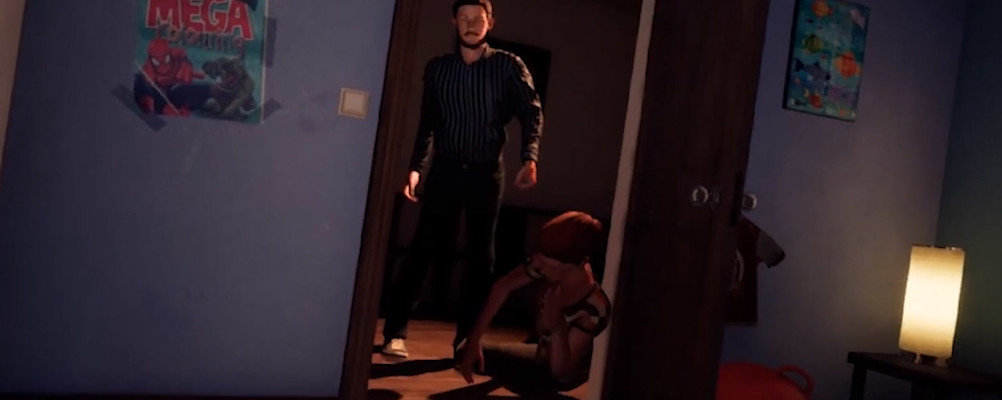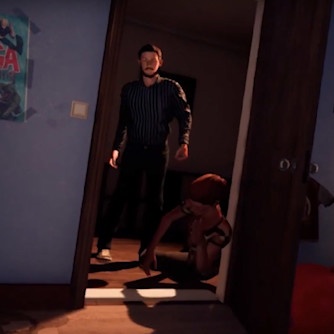Case
Don't Forget About Me
Why this product?
Domestic violence is a societal problem that is very common. In addition to perpetrators and victims, there are other professionals in child protection, police officers and students that have to deal with this topic. But what it's really like to experience domestic violence, is difficult to understand if you haven't experienced it yourself. When showing what it's really like can lead to empathy and maybe even new insights about for example its impact Enliven Media developed the virtual reality simulation Don't Forget About Me with this in mind.
What's the product all about?
Don't Forget About Me is a VR simulation that is used by government, healthcare and educational institutions. The goal is to trigger empathy through emotions. This, together with the training embedded in the simulation, will lead to more empathy, awareness, and depending on the target audience, behavioral change. In the simulation, the participant adopts the role of seven-year-old Joris. The boy is in his bedroom and witnesses an intense argument between his parents, who are in the hallway. At one point, he hears glasses breaking and someone gets hit. Joris feels like he caused the fight because his parents were angry that he was still up so late, and he feels scared and powerless.
Research has shown that the results of the pilot simulation were positive. Participants were more willing to put themselves in a vulnerable position after the simulation and it was easier for them to understand the situation and feelings of the children. They also gained more insight into the damaging effects of violence. The pilot also led to a few points for improvement, that will be taken into account for the next phase. For example, trainers should really prepare participants for their participation in the VR simulation. They are also working on a customized approach for different target audiences.
What is the contribution to and of the creative industry?
Enliven Media used several techniques from the game design and movie industry to make the impact of the simulation as big as possible and create a believable world. Using the storytelling technique, the “three-act structure” (set up, confrontation, resolution) and several storytelling elements like personas, animations and surroundings to come to a complete story, it makes an impression. Alex Tavassoli, founder of Enliven Media: “In the end it's all about the feelings the victim faces. What is the victim feeling and how do we trigger those feelings in the user? We also consciously chose to keep the story relatively general and not point the finger at a perpetrator, which causes a lot of people to be able to identify with it.”

“We started designing the scenario with the help of a focus group with a number of experts from e.g. the Public Prosecutor's office, the police and Child Protective Services. My colleagues and I all happen to have experience in that we've all experienced domestic violence and were able to provide input from that point of view. First, we made a list of the feelings a victim has. Then we worked out what could trigger these feelings in the story and how we could make that come to life using certain events.
A good example are feelings of powerlessness and responsibility. We emphasize that on the one hand because Joris cannot leave his room in the simulation and can't do anything to stop the fight. On the other hand, we do that by having his baby sister in the room with him in her crib, which he can't reach because he's too small. To reinforce the impact and hold onto it after the experience, the story stops at the peak of the fight and the image slowly goes dark while you can still hear the parents yelling.
So what's next?
The simulation is already being used by several organizations, but it is still being developed further. Enliven Media wants to make the simulation more realistic, improve it in several areas and make it more affordable. They are also looking into what the best way is to embed the simulation into the day-to-day of organizations.



